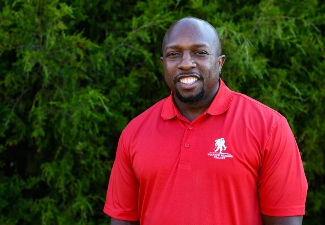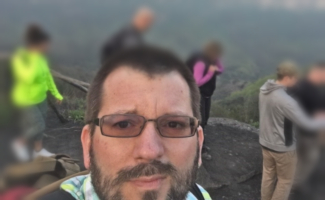Talk it Out: Understanding Counseling, Therapy, and Coaching

Everyone experiences stress at some point in their lives. Daily work or family responsibilities may take a back seat when life becomes overwhelming, which can cause anxiety, depression, and other mental health challenges to rise to the surface.
Seeking support to improve mental well-being can help, especially for veterans and their family members, who may have added challenges due to past experiences.
But who do you talk to?
You may hear various terms when seeking mental health support, including counseling, therapy, and coaching. Although people often use these terms interchangeably, they have unique features and benefits. Understanding the similarities and differences can help you decide which path might be best for you and/or your loved ones.
Below, two mental health professionals at Wounded Warrior Project® (WWP) share their perspectives.
Counseling: Short-Term Support
Counseling helps manage specific problems or transitions, such as job transitions, daily stressors, or relationship dynamics. Counselors offer a structured way to work through these issues and the associated thoughts and feelings.
“Counseling is a safe space where someone can express their feelings and work through immediate issues. It’s generally short-term and goal-oriented,” said Nicole Saunders, a licensed mental health counselor who is one of the managers of the WWP Talk program.
Counselors are trained professionals—though licensure may vary by state—who typically provide practical advice and offer coping strategies. Nicole added that counseling sessions often occur weekly and last between 45 minutes and an hour.
Therapy: In-Depth Exploration
Therapy, or psychotherapy, involves a deeper exploration of emotional and mental health issues, including depression, anxiety, and post-traumatic stress disorder (PTSD).
“Therapy offers a more thorough approach to understanding and working through deeper emotional struggles that manifest as mental health issues. It’s not just about managing symptoms but exploring their root causes and working through them with evidence-based techniques,” said Dr. Erin Fletcher, Psy.D., director of WWP’s Warrior Care Network.®
Like counselors, therapists are trained and licensed, though there are varying levels of licensure based on someone’s specialty. The primary difference is that therapists, including psychologists and licensed clinical social workers, use various methods to help individuals process their experiences and improve their mental health. These techniques may include cognitive-behavioral therapy (CBT), dialectic behavior therapy (DBT), and trauma-focused therapy. Erin said therapy may occur weekly and continue for a year or more. Programs, such as Warrior Care Network, use accelerated techniques that allow for more in-depth therapy sessions over a shorter timeframe.
Coaching: Goal-Oriented Support

Coaching is distinct from counseling and therapy. It focuses on personal or professional development. Coaches help individuals set and achieve specific future-oriented goals.
WWP Talk is an example of a coaching program that provides non-clinical, emotional phone support and goal-setting guidance to warriors and their loved ones. WWP Talk participants connect weekly with mental health coaches via 20-minute supportive listening calls.
“Coaching is about setting practical goals, working towards them, and providing accountability. Coaches don’t delve into past trauma or mental health diagnoses. Rather, coaches use proven techniques to help clients create positive life changes,” said Nicole, adding that WWP Talk offers a safe, nonjudgmental space to help individuals set and achieve their personal growth and self-improvement goals using the SMART goal-setting model.
The acronym stands for Specific, Measurable, Achievable, Relevant, and Time-bound.
“If a veteran or their family member wants to devote more time to a self-care routine, improve their physical fitness, or build a business plan, we will work together to set specific, measurable, achievable, relevant, and time-bound goals,” she said. “Then we will help our clients reflect on their progress, ask questions, and empower them to make adjustments or identify solutions to overcome any obstacles.”
|
A SMART goal example A warrior wants to better manage stress and recognizes that exercise may help. The SMART goal would look as follows:
|
Nicole said many participants find WWP Talk a valuable addition to counseling and other therapies. Participants typically use the program for about six months.
While many coaches have mental health backgrounds, becoming a coach requires no specific licensure. Coaches may have certifications in specialty areas such as executive presence, nutrition, or physical fitness.

Misconceptions in Care
“Two common misconceptions are that mental health support must start at the lowest level, like weekly therapy or counseling, and that someone has to fail at that level of treatment before participating in a more robust program. Neither is true. Sometimes, veterans need more support,” said Erin.
“Individual therapy may be valuable, but depending upon where people are – for instance, dealing with complex PTSD symptoms that are significantly impacting their life – a once-a-week conversation may not be adequate. That’s where an accelerated program like Warrior Care Network may be helpful,” she said.
Tips for Finding a Provider
When seeking support, it’s important to feel connected to your provider. “You want to feel understood and comfortable saying anything without fear or judgment,” said Erin, adding that she recommends asking yourself the following questions:
- Do you require specialized support? For instance, if you require help with substance use, then finding someone who specializes in drug and alcohol support may be valuable. A professional with experience with couples counseling or family therapy might be helpful for addressing marriage or family difficulties.
- Do you want a person of a particular gender, race, or ethnicity? Making sure you are comfortable with the person you speak with is critical, so consider characteristics that might help you feel more at ease.
- Do you want someone familiar with the military? Often, veterans find it easier to connect with someone trained in and who understands the military culture.
One Call to Get Support
Choosing the right mental health support may feel daunting, but WWP’s triage service makes finding care stress-free. A dedicated team of mental health specialists quickly assesses individual needs and priorities and then connects them to the best veteran-centric care resources, including referrals to community partners.
“The first step is acknowledging that you want support. Then, calling to identify the support that best fits those needs,” said Nicole. “Whether managing current challenges or working through deeper issues, Wounded Warrior Project offers many support resources to help you move forward on your journey to enhanced well-being.”
If you or a loved one are in crisis, call or text 988 to reach the 988 Suicide & Crisis Lifeline, available 24 hours a day, seven days a week.
Contact: Cynthia Weiss – Public Relations, cweiss@woundedwarriorproject.org, 904. 738.2589
About Wounded Warrior Project
Since 2003, Wounded Warrior Project® (WWP) has been meeting the growing needs of warriors, their families, and caregivers — helping them achieve their highest ambition. Learn more about Wounded Warrior Project.


